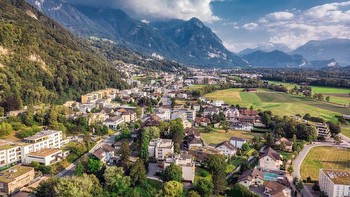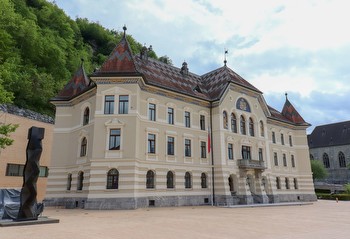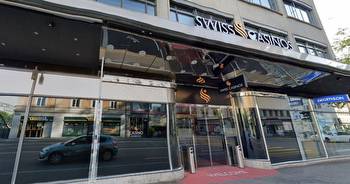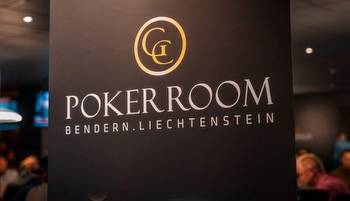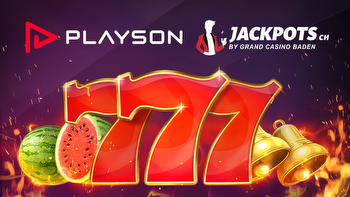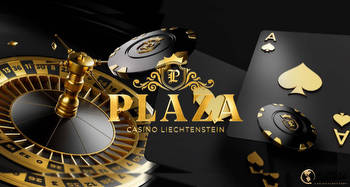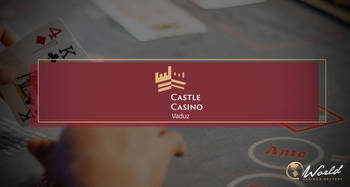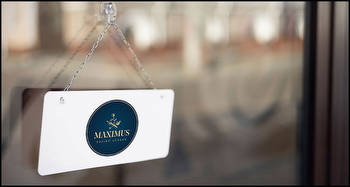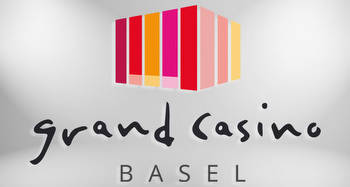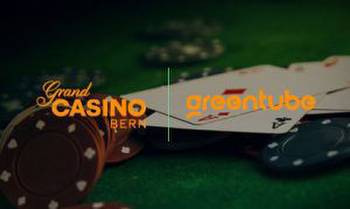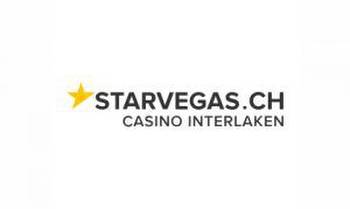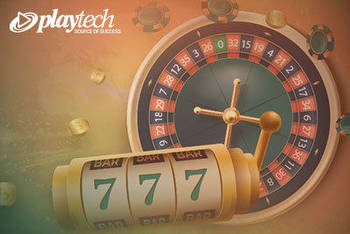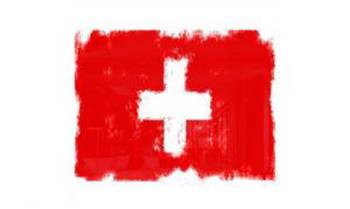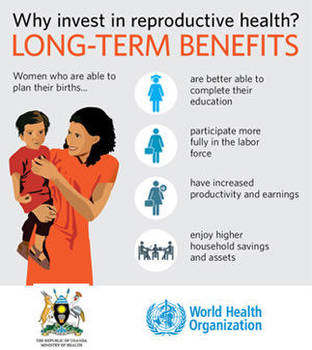Is a Big Casino Footprint in a Tiny Principality a Good or a Bad Bet?

VADUZ, Liechtenstein — It was a drab Tuesday evening in an industrial neighborhood in northern Liechtenstein, but that did not deter a steady stream of drivers in cars bearing an array of international plates.
Their destination: a squat gray building with an understated blue and red neon sign reading, “Grand Casino.”
Ronald Grimm, a 59-year-old Austrian who wears a silver ring in his left ear and lives in Switzerland, says he visits the Grand Casino, one of a string of mostly nondescript gambling joints along Liechtenstein’s borders, whenever he can to play the slots.
“I am too old for nightclubs, I am not a regular at a bar — so where do I go? To the casino,” he said. The Grand Casino, which opened in 2019 and has 292 slot machines and 29 game tables spread over three floors, is his favorite, a place where he says he feels more likely to win. “I like the ambience,” he said.
Covering about 62 square miles, Liechtenstein is one of the smallest countries in the world. Not even 40,000 people call it home.
But only four years after opening its first casino, Liechtenstein — a tiny principality squeezed between Switzerland and Austria that is known mainly for its private banking and former status as a tax haven — now has more casinos per capita than Monaco, Macau or Clark County, Nev., which is home to Las Vegas.
In the past few years, Liechtenstein has seen five casinos open — aimed mainly at attracting gamblers from neighboring countries — and there are plans for five more. The proliferation is causing alarm among some in a country where gambling had largely been illegal until 2010.
“Liechtenstein doesn’t need casinos and the money that they bring,” said Hansjörg Frick, a former politician and a founder of a group opposed to the casinos, IG VolksMeinung. “We don’t want to be associated with them.”
Christian Frommelt, the director of the Liechtenstein Institut, an independent research organization, said casinos were likely to remain a divisive issue. “It is rare to have such a major debate in Liechtenstein and for an issue to get so politicized,” he said.
He said the casinos pitted the rural country’s conservative values, rooted in Catholicism, against its liberal economic ones, which have made Liechtenstein one of the world’s leading financial centers.
“Casinos create a conflict between these two worlds,” he said.
Unlike their glitzy cousins in Las Vegas or Macau, Liechtenstein’s casinos are modest affairs. There are no sprawling gambling resorts with fireworks shows or reputations for never sleeping — no, these casinos are more focused on slots and tables. And because gamblers are allowed to light up while playing, they are also smoky.
The gambling boom in Liechtenstein dates to 2017, with the opening that year of two casinos. Three more followed soon after, and another two are scheduled to open by the end of this year.
The casinos are predominantly run by foreign operators: two by Casinos Austria International and two by Novomatic, an Austrian gambling company and slot machine maker that has been implicated in a corruption scandal in its home country. The fifth casino, and the majority of the others planned, will also be foreign-run.
Thomas Gstöhl, who heads a gambling oversight division in the Office of Economic Affairs, said the casino rush caught everyone by surprise. “No one would have thought that in Liechtenstein, five, or even more, casinos could open,” he said.
Mr. Gstöhl, whose division allocates casino licenses, said experts had estimated the country’s market to be relatively small, with no more than two applications expected.
One reason the gambling industry has taken root in tiny Liechtenstein is its free-market ethos. (Neighboring Switzerland and Austria, on the other hand, restrict the number of casinos they allow.)
The tax system is another: Liechtenstein levies rates of 17.5 percent to 40 percent on gambling revenue, depending on how much a casino makes. In Austria, the rate is 30 percent, and in Switzerland, it starts at 40 percent and rises to 80 percent.
Much of the revenue Lichtenstein’s casinos earn comes from foreign gamblers. Official statistics show that last year, not even a third of the nearly 400,000 visits were made by people who live in the country.
Thomas Pirron, the director of the Casino Schaanwald, near the Austrian border, said the majority of visitors to his casino come from Austria. Many, he said, are drawn to the range of slots on offer, but others to the relative privacy a cross-border trips allows.
“People go a little further away from home because they don’t want their neighbor to see their car in front of the casino,” Mr. Pirron said. “In the minds of people, the casino is still something seedy.”
Opposition to the casino industry in Liechtenstein has been growing louder with each opening. And the heightened attention has made the industry nervous. It says that the market will eventually regulate itself and that the number of casinos will most likely eventually shrink to four.
But for some government officials, that might not happen soon enough. Liechtenstein’s deputy prime minister, Sabine Monauni, told a local newspaper that the time had come for policymakers to take action “so that we don’t turn into Las Vegas.”
Indeed, the government recently announced adjustments to the gambling industry’s operating conditions — to come into force in 2022 — making it more costly for casinos to run and hitting the smaller ones the hardest.
Many in Liechtenstein also worry that the casino boom could negatively affect the country’s reputation.
Dr. Frommelt, of the Liechtenstein Institut, said the country had transformed its financial industry in recent years in an effort to distance itself from its past as a tax haven, which was tainted by a series of scandals. Many opponents of the casinos are worried that they could be used for money laundering, he said, even though government officials say gambling is Liechtenstein’s most regulated industry.
Critics have also pointed to Liechtenstein’s willingness to welcome gamblers who have been barred from casinos in neighboring countries as a possible ethical issue.
Take, for instance, Josef Uenes, who recently drove about 40 minutes from his home near the city of St. Gallen, Switzerland, to play the slots at the Grand Casino. He said he had traveled to Liechtenstein for a very simple reason: “I’m banned from casinos in Switzerland,” he said.
Swiss casinos, like their Liechtenstein counterparts, are required to bar those considered to have gambling addictions or who regularly play beyond their means. But lists of barred players are not currently exchanged across borders.
Mr. Uenes, an appliance salesman, said he had actually put his own name on the blacklist in Switzerland, noting that Swiss casinos were “too close to home.”
So now and again he makes the trip to Liechtenstein to gamble. Once, he said, he won about 32,000 Swiss francs, or about $35,000, at one of the principality’s casinos. “I love the adrenaline rush,” he said.
But, this time, things did not go his way, and he dropped 1,800 francs in 90 minutes.
“The evening was not successful,” Mr. Uenes said with a laugh.







